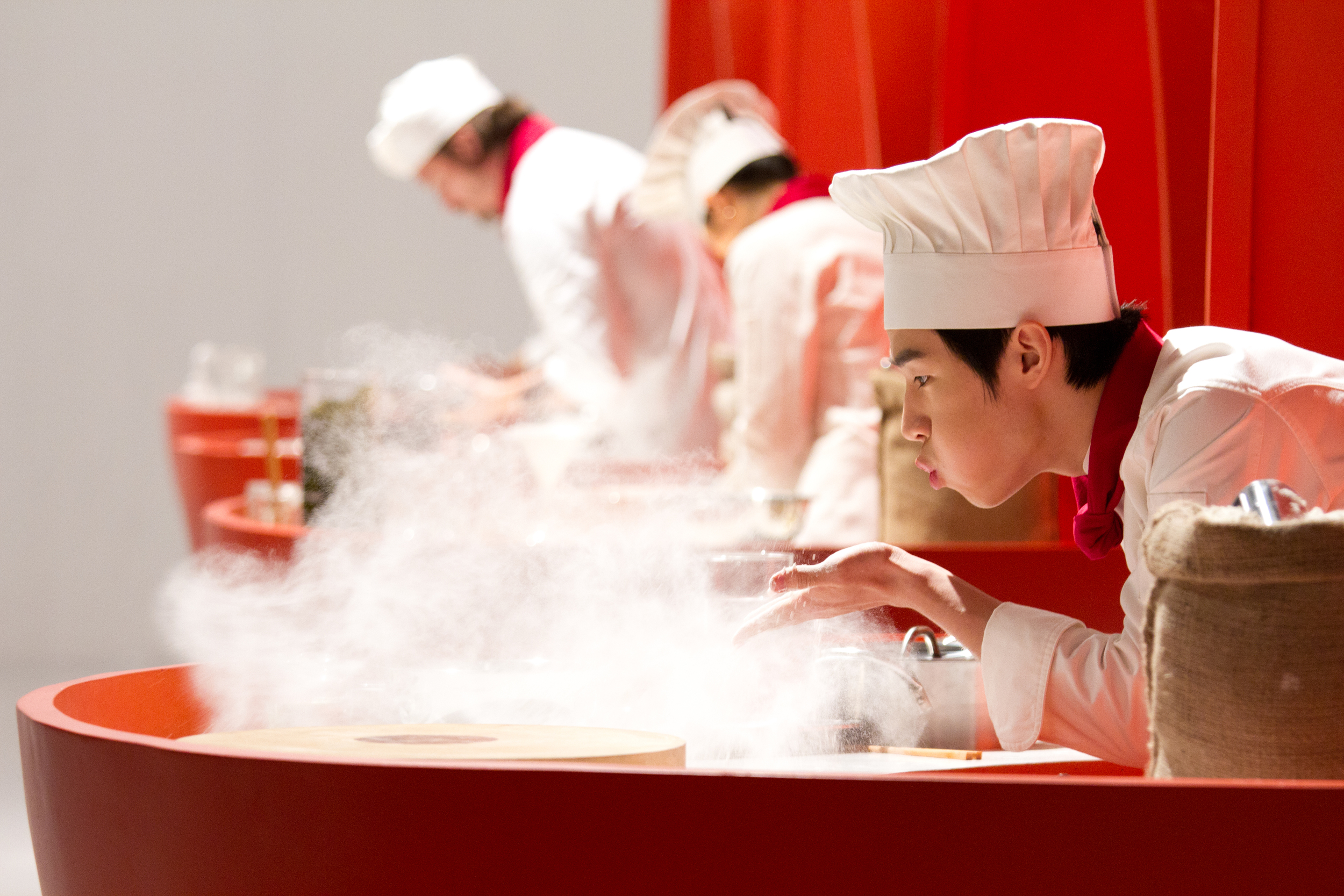
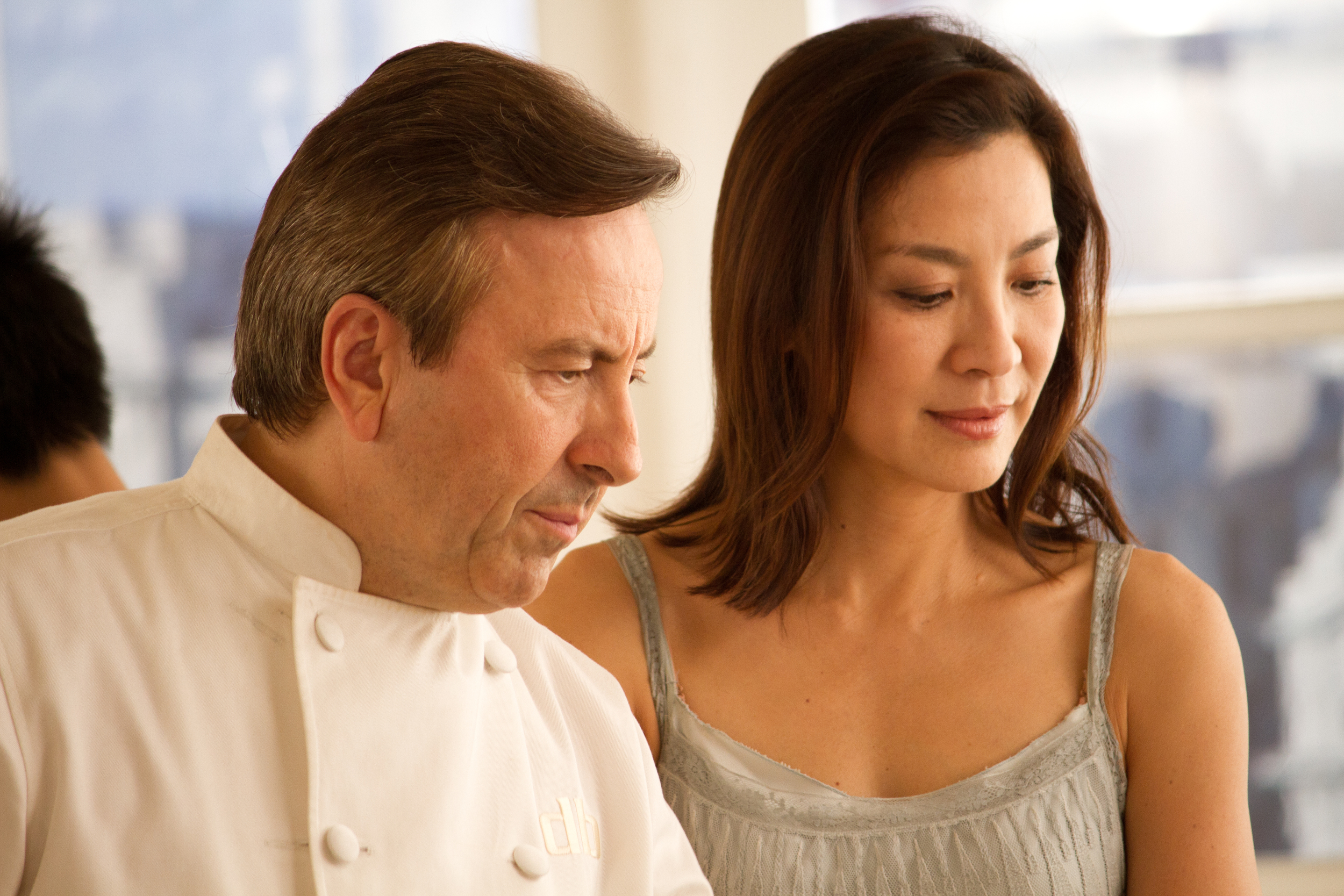
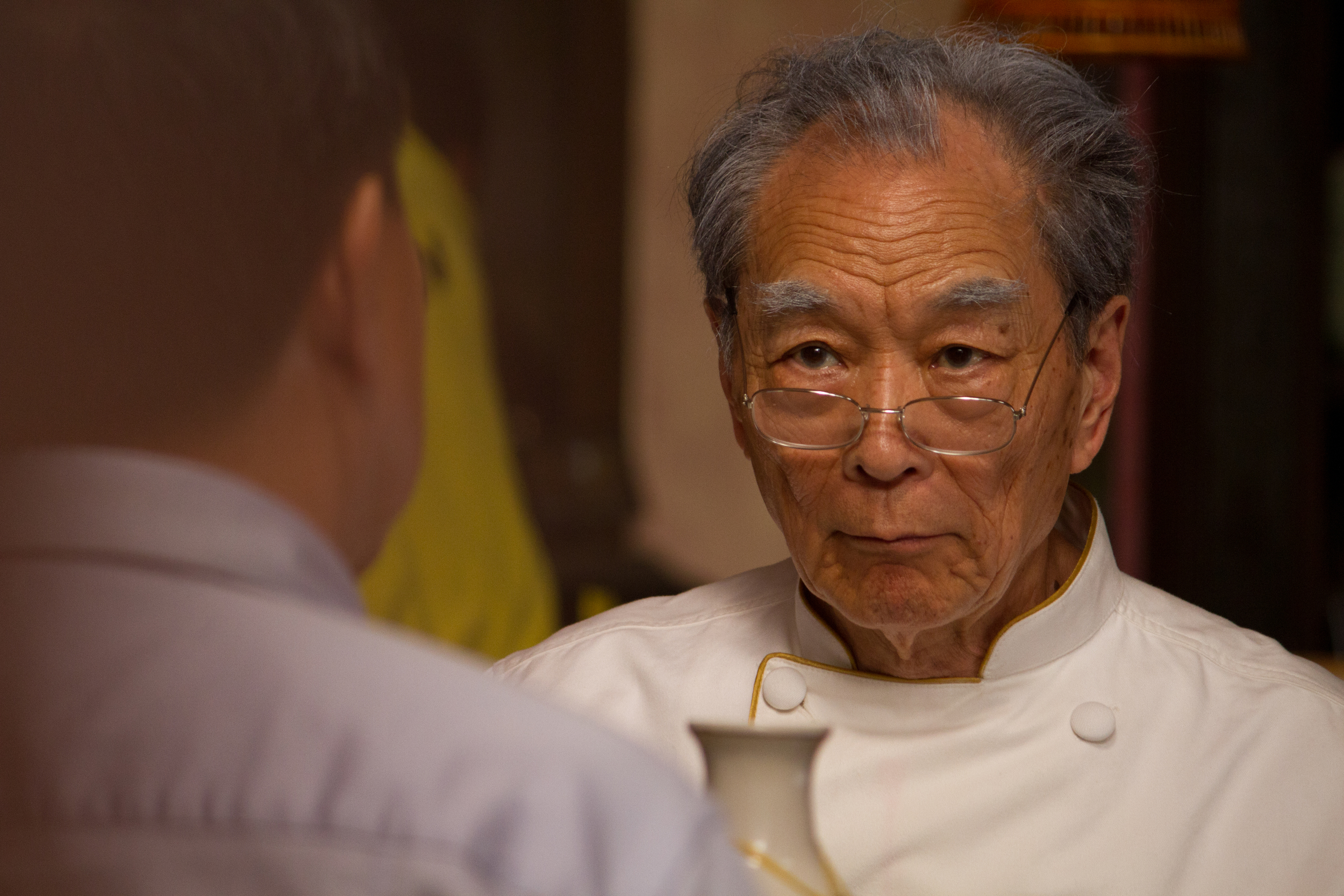
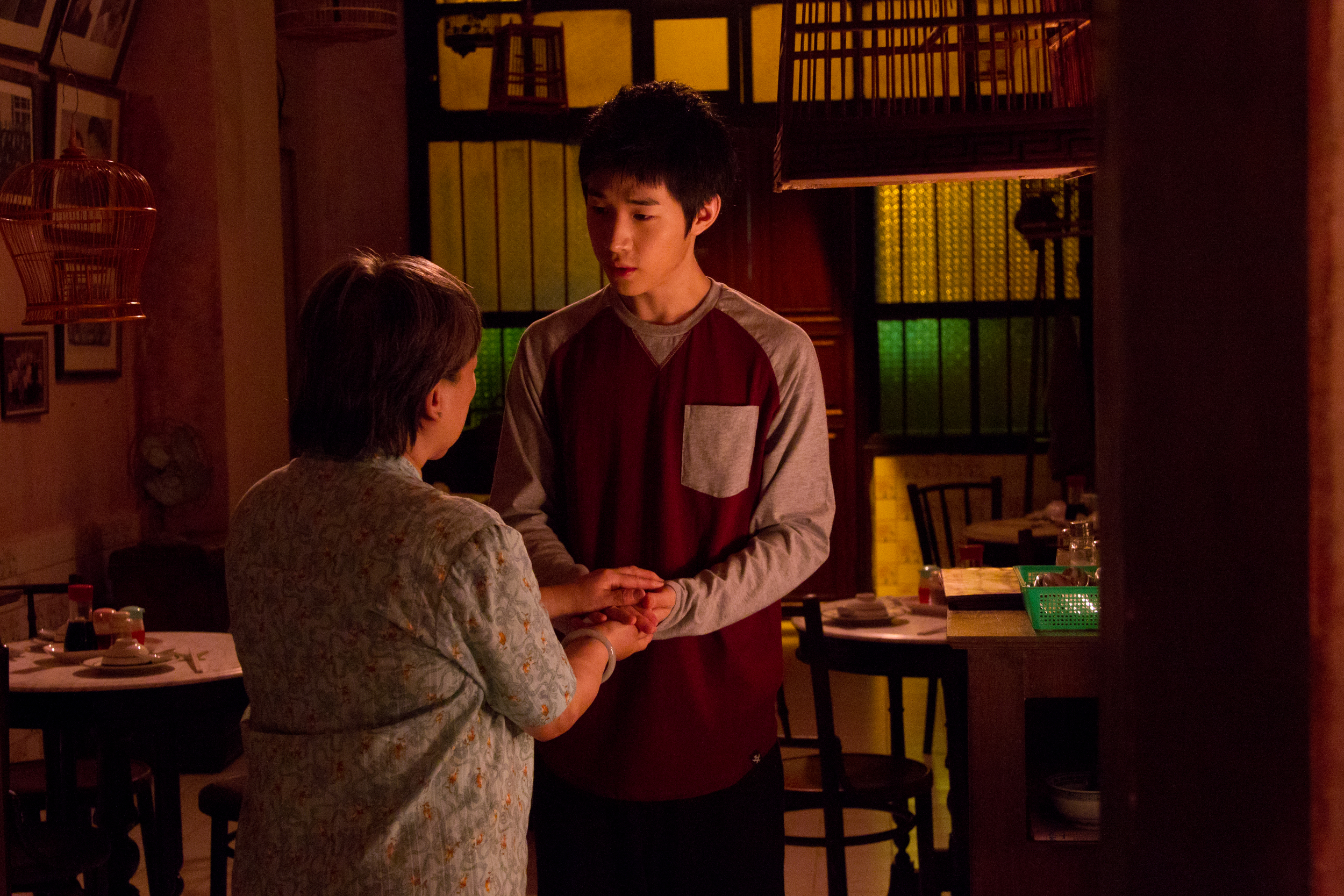
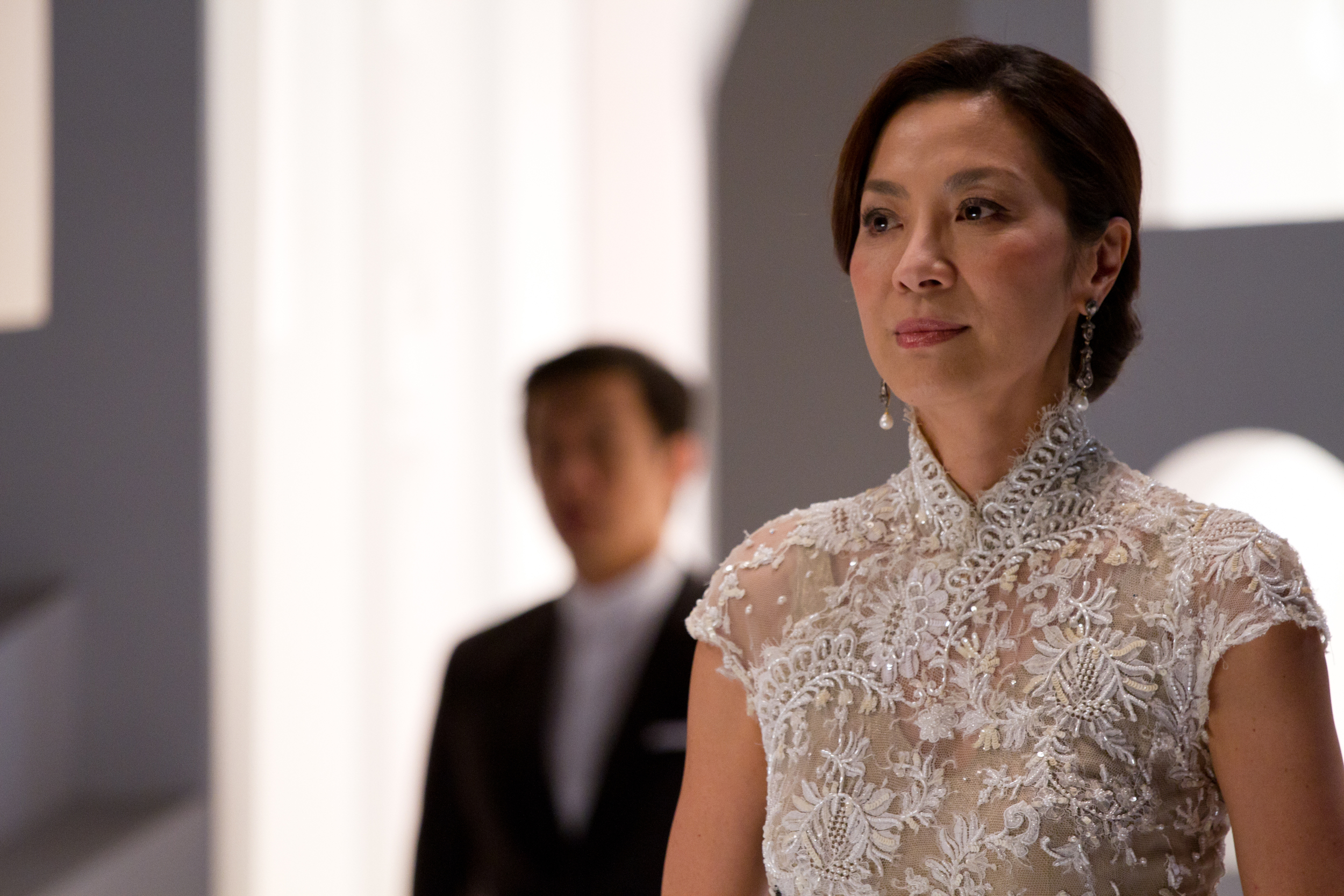
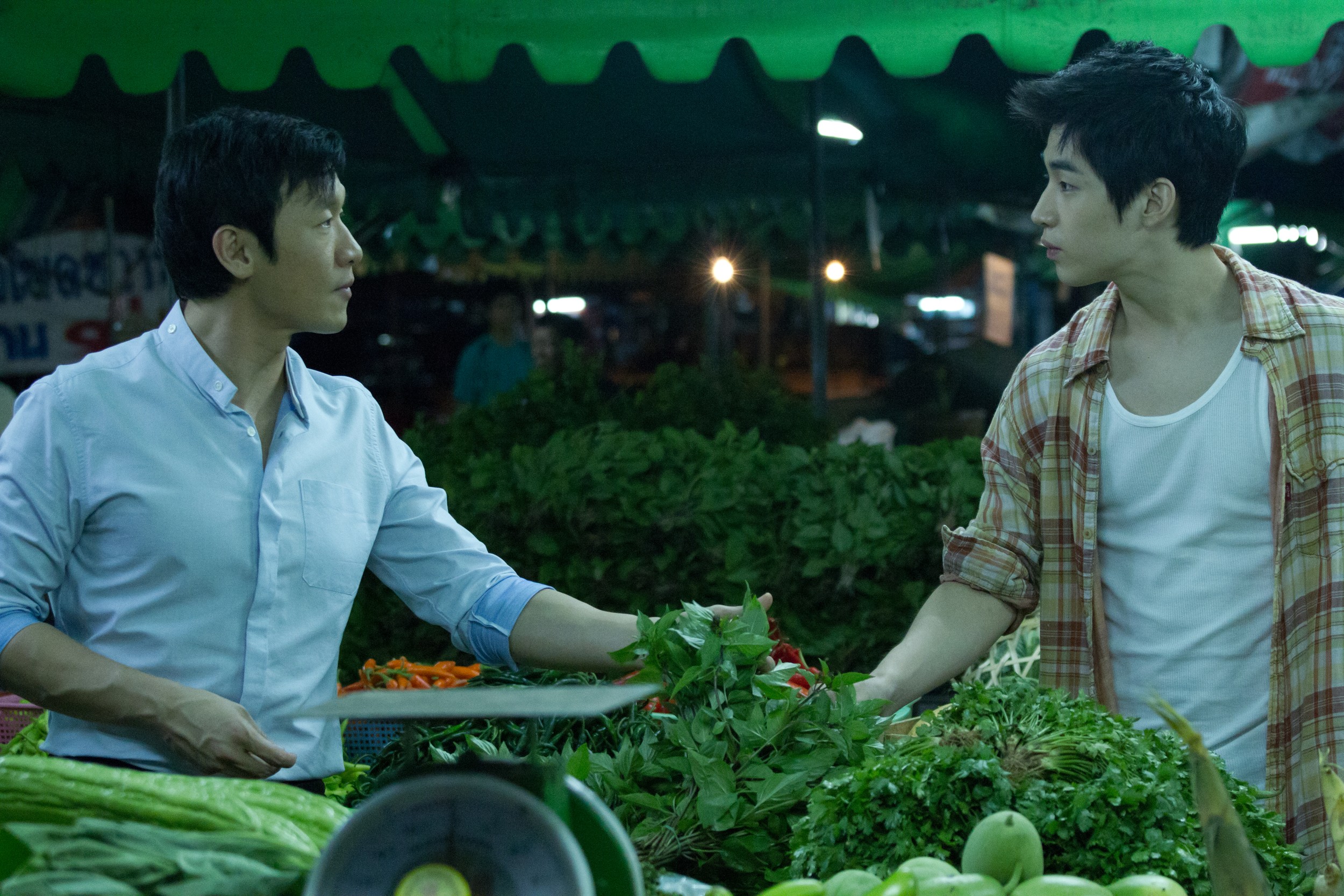
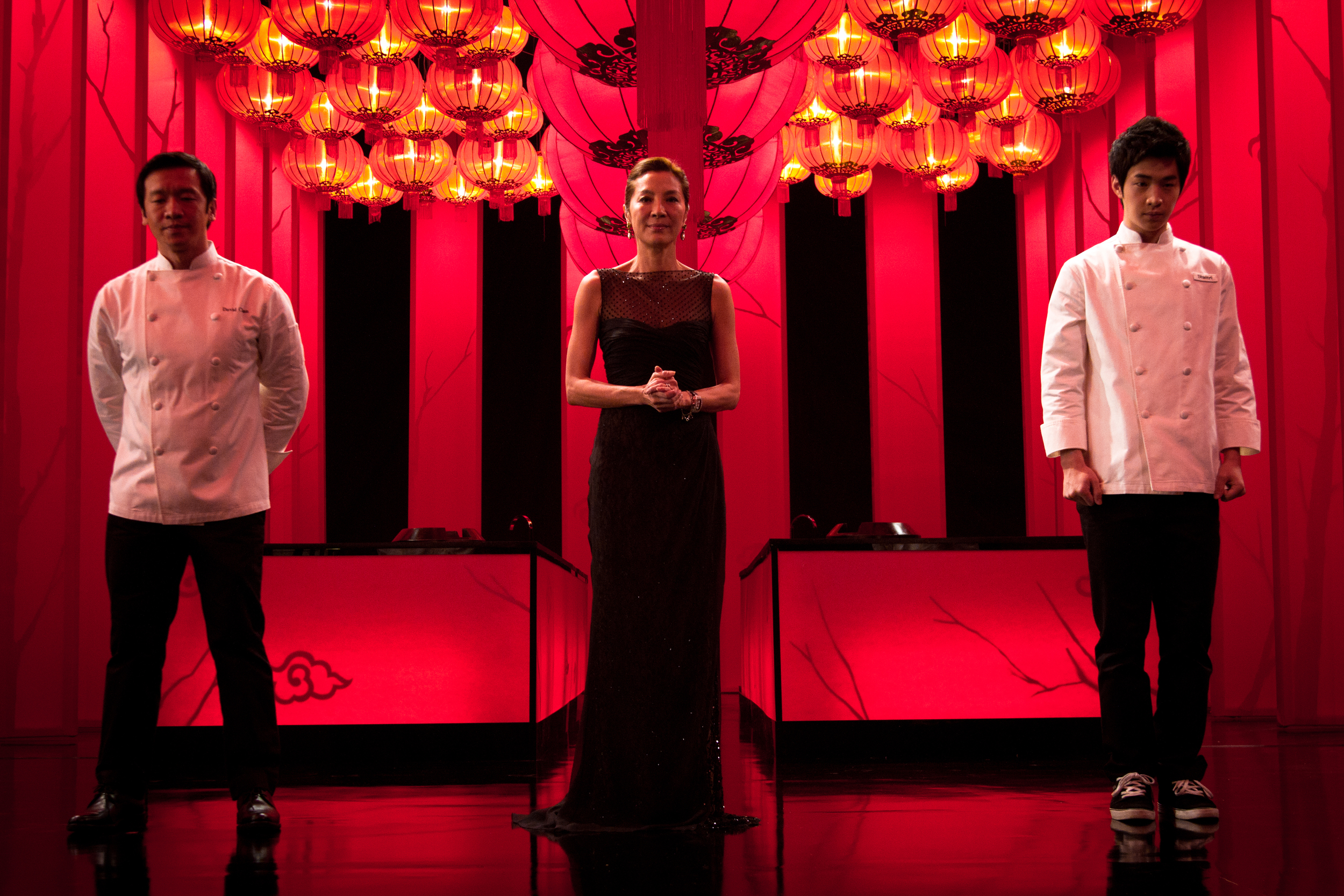

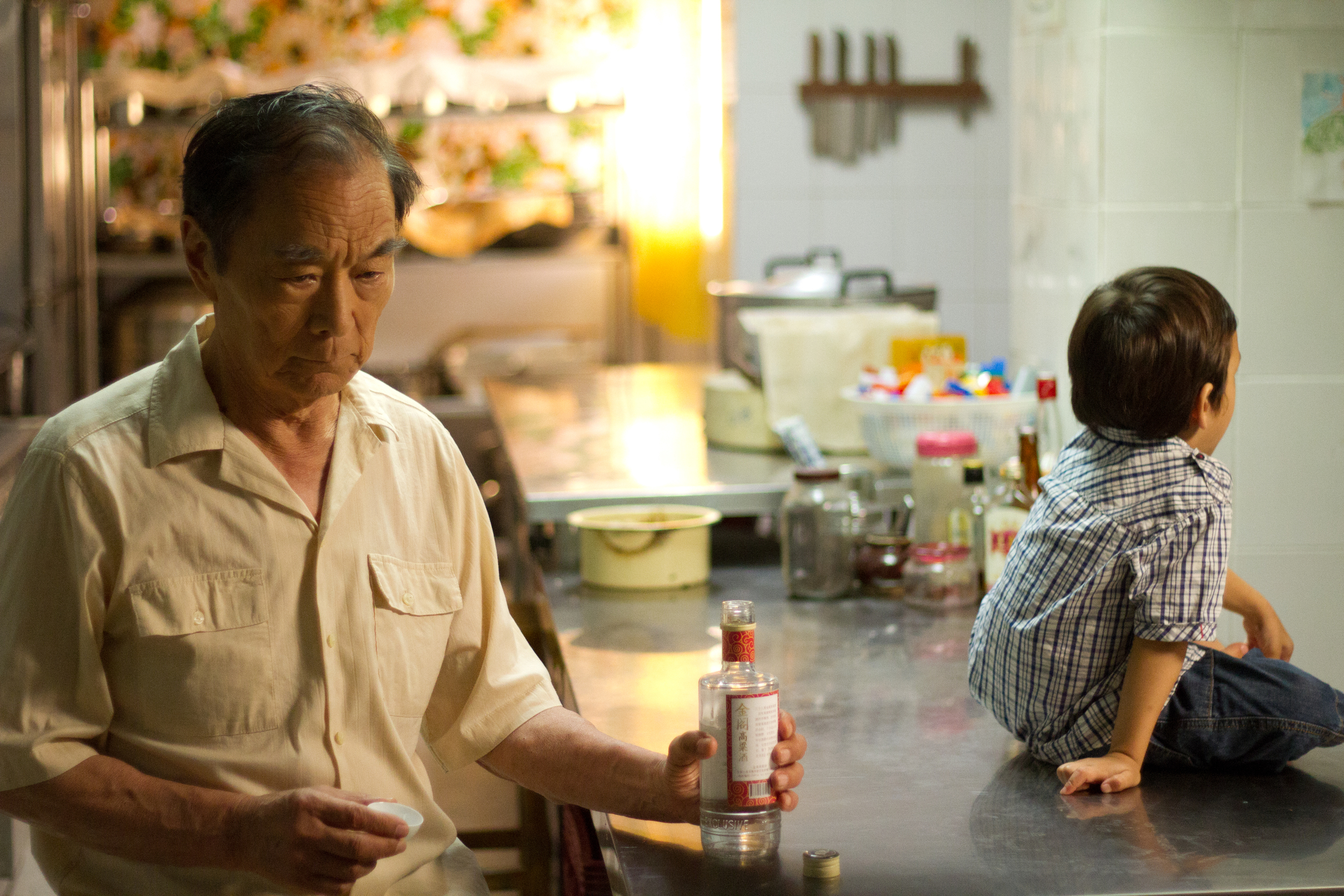

"Gina Kim conjures a non-exotic piece out of a territory-trotting narrative, where every place is made to seem like home."
—Clarence Tsui, The Hollywood Reporter
"A film experience that is very fresh!"
—Adnan M, Art Guild
"A glossy and enjoyable journey... tender and moving!"
—Mark Adams, Screen Daily
SYNOPSIS
Hao's only hope is that his grandson Mark enters a prestigious university, but Mark's dream is to follow his grandfather's footsteps and become a chef and take over the family restaurant. Due to Hao's difficult personality, the restaurant is on the verge of bankruptcy and he finally collapses. In order to save the restaurant, Mark enters a cooking contest without his grandfather's knowledge and consent in Shanghai. He competes against talented chefs from Japan, Korea and Australia, and freely shows off ravishing cooking skills that he has accumulated from his grandfather over the years. As Mark wins round after round and gains attention, Julia, the contest producer notices something peculiar about him, then slowly realizes that Mark and her husband David resemble each other. — Cj Entertainment
CAST AND CREDIT
A CJ Entertainment presentation of a CJ Entertainment and Bang Singapore Production Mark Henry Lau Julia Michelle Yeoh David Chan Chin Han Hao Tseng Chang Produced by Yeonu Choi, Tae-sung Jeong, Gina Kim Executive Producers Keiko Hagihara Bang, Miky Lee, Mike Suh, Michael J. Werner, Michelle Yeoh Co-producer Sabrina Chen-Louie, Francis Chung, Khan Kwon, Keo Lee Associate Producer Jayne Kim, Sou Yun Sim Written by George Huang, Gina Kim Directed by Gina Kim Cinematography Jun-young Kim, Young-Ho Kim Editor Steve M. Choe Music Young-Jin Mok Production Designer Darcy C. Scanlin Art Direction Sorawut, Akarawatcharangura, David Offner Costume Design Chantika, Kongsillawat Sound Dhayana Carlton-Tims, Matt Hovland, Ji-young Sung Visual Effects Jeong Jaehoon, Namsik Kim, Wenjia Zhang Casting Patima Thampirak
97min, Color, 35mm/DCP, 2014.
REVIEWS
Six years after her New York-based cross-cultural marital drama Never Forever, Korean director Gina Kim returns to Asia with a food and family film about a high school student's discovery of his abilities and cultural roots. Humility, harmony and a lot of heart: the three things that Final Recipe's protagonists discovered to be essential to a good dish are also what shape the film itself. Steering clear of the boisterous aesthetics of many a past masterchef-contest films – Stephen Chow's God of Cookery, say, or Jeon Yun-su's manga adaptation Le Grand Chef – Korean director Gina Kim has delivered a mild, comforting oeuvre which channels a reaffirmation of cultural roots and traditional bonds within a crust of a family-reunited melodrama. While the presence of Michelle Yeoh (who's also one of the film's many executive producers) would help raise Final Recipe's profile among Chinese-speaking audiences in both Asia and in the US – especially when the film, though taking place among Chinese characters in Singapore and Shanghai, is nearly entirely in English – the on-screen gastronomic pleasures would also ease the film into the now burgeoning food-film chain. Its appearance at San Sebastian Film Festival's culinary cinema section, to be followed by an opening-film slot at the Hawaii International Film Festival on Oct. 10, is bound to just the first outings in similarly-themed programs, mirroring – to a lesser scale, maybe – the travels of films such as Mostly Martha.
Playing the mastermind of a successful, long-running cooking-competition show – or, as the character Julia is described in the film, the gastronomic "grandmaster" – Yeoh is central to the proceedings. But more as a catalyst, mind, as Final Recipe is essentially a film about generational schisms among the men in a clan: the major ingredient in the formula here is Mark (a vibrant turn from the Canadian-Chinese K-pop star Henry Lau), a Singaporean high-school student whose enthusiasm and gift in preparing food are frowned upon by his chef-grandfather Hao (Chang Tseng), who single-handedly raised him with hopes of getting the boy into university rather than taking over his crumbling restaurant. Running against past mainstream narratives of scions refusing to (and often finally relenting in) taking over a dated family business, Mark's enthusiasm lies solely on learning his grandfather's recipes and admiring, from afar, the career of David Chan (Singaporean-born Chin Han, The Dark Knight and Contagion), an established culinary mega-star of Julia's Shanghai-based TV show – and a man who also recounts of having to rebel against a vanished masterchef-father who tried the utmost in trying to derail his aspirations for a career in the kitchen.
With his grandfather falling ill and his eatery getting nearer to be shuttered for good – partly due to the old man's open disdain for customers who disagree with his self-proclaimed "real cooking" – Mark's gambit lies with using what should have been his university fees and fly off in the hope of winning the $1 million cash prize in the Julia-David "Final Recipe" competition. Taking the place of a Russian contestant who doesn't turn up, the teenager deploys his youthful spunk (cooking an omelette over burning documents when the stove doesn't work) and inventiveness (revitalizing the pepper paste in the Korean rice dish bibimbap, or serving noodles as dumplings) to emerge into the final showdown with David – a clash which, as Julia's introduction illustrates, would look at "what family tastes like". It's certainly not that difficult to guess what the film's big reveal is, especially when David tells Mark – or "Dmitri", as he's known – during a brief meeting in the market that "if you're my kid, I'll be very very proud". But it's the expectation of reconciliation and reunion that drives Final Recipe – it's the antithesis of the Gordon Ramsay-style reality TV spectacles – an advocacy of warm, interpersonal concord which glosses over some of the logical flaws in the back stories which led to Mark's and David's agony and angst.
Despite having her own screenplay reworked by George Huang – a fact which explains Final Recipe resembling a director making a big leap into mainstream-style story-plotting – Kim has shown herself still able to mine some of the themes in Never Forever, her Vera Farmiga-starring 2007 Sundance hit about an American woman recruiting a Korean immigrant to impregnate her so as to save her marriage with her Korean-American husband. Final Recipe is all about turning one's back on middling cultural fusion and returning to one's roots. The once London-based Julia would find her success back in China, and so would the Singapore-raised Mark find inspiration (from the Shanghainese street snacks which mesmerized him), his big break and estranged parent there; the young chef's earthly dishes – derided by an American connoisseur as "peasant cooking" – rings in greater acclaim (from the Asian judges) than the fancy French pretensions of his fellow Japanese contestant Kaori (Lika Minamoto). Backed with a polished production design and more than competent technical values, Final Recipe – which is backed by South Korea's CJ Entertainment – is Kim's ticket to prove her credentials for entry into her home country's commercial filmmaking arena. And with the Seoul-based major now flexing its international co-production muscles, they might look at Kim with some confidence as she conjures a non-exotic piece out of a territory-trotting narrative, where every place is made to seem like home.
— Clarence Tsui (September 26, 2013)
Food acts as a catalyst for many conversations. It is the global language between cultures, and is certainly one of the more pressing priorities on many folks’ daily lists. A film based around food is always an inviting concept, and when one mixes in an interesting storyline with a talented cast, the result is something to add to your must watch list. Gina Kim’s Final Recipe is more than just another food film, exploring a variety of different topics, and delivering a film experience that is very fresh (pardon the pun).
Final Recipe follows a young man named Mark (Henry Lau), a high-school senior with a talent for cooking. Despite his ability, his grandfather insists that he not dabble in the family restaurant business and take up a profession more stable and secure. Things take a turn for the worst when Mark’s grandfather falls ill and the restaurant he built faces foreclosure. Determined to make things right, Mark enters a national cooking competition in Shanghai with the goal of winning the big prize, taking him on a journey even he did not anticipate. The film deals with moments of exploration, discovery, and revelation, with characters and culinary art being the catalysts along the way. When one thinks of Asian cooking, a variety of images spring to mind; it could be the bright redness of spicy kimchi or a precisely cut platter of sushi. The fact of the matter is, Asian cooking involves many different countries and cultures, and director Kim makes that evident within this film. Apart from a few geographic mentions and obvious region-specific names, Asia as a whole is very much represented within the film. This China-Korea co-production focuses on the art of cooking rather than a specific culture, even placing western styles into the storyline. Furthermore, the film mixes in just enough mouth-watering imagery and cooking sounds to make one drool, but not enough to lose focus. Food is very much celebrated throughout the film, with Asian cooking examined from a macro perspective, and cooking itself as an art.
The element of universal representation is further applied when one filters down to the cast involved. One glance and it becomes apparent that the cast is from pretty much everywhere: Chin Han hails from Singapore, Michelle Yeoh from Malaysia, and Henry Lau from Toronto, and the individual performances are enjoyable and memorable. The film marks Lau’s acting debut, and he shows much promise in the film business. Han and Yeoh are simply magnificent as always, bringing very sophisticated characters to the table. A notable performance is by Tseng Chang, who plays Mark’s grandfather Hao, a character that it is easy to love by the end of the film. Kim and her team have selected a cast with great chemistry that is evident in the final product. There are a few characters that are a tad stereotypical, but they add to the laughter and fun.
When watching the film, one does get the impression of over simplicity, and sometimes even predictable moments. Final Recipe does, however, bring to the table a few lovely qualities. Kim uses very simple cinematography techniques, leaving out dramatic options unless absolutely required by the moment. One is drawn into the world of these simple characters and their delicious food by the focus of the camera, which remains on them and nothing else. The food and these characters are linked, and neither can exist without the other. This technique, coupled with interesting music and a heart-warming story, makes the overall film experience highly enjoyable. Final Recipe is a thoroughly enjoyable film, and is one that can be experienced by all members of the family. It strengthens the links that tie food and people, and in this case, food and family. The film touches on the notion of “Asian” culture, the various definitions of family, and what it really means to follow your dreams. It isn’t a corny comedic adventure that is just for laughs; instead, it is aimed at a younger audience with a hope to enlighten, and does so quite well. Be warned, though: you will feel a tad hungry by the end of it all!
— Adnan M. (February 14, 2014)
A warm-hearted story of cooking and families, the glossily made Final Recipe is a frothy, engaging and gently moving story of a family driven apart and finally reunited by a passion for food. Shot in English (with only a couple of scenes in Mandarin) and with the ever-charismatic Michelle Yeoh on-board as both star and executive producer, it has the qualities to play well as well as being a solid seller. The heart of Final Recipe may be pure melodrama, but it is a glossy and enjoyable journey. Set against the backdrop of a televised ‘Master Chef’ competition, the film plays on expected notions of family, love and loyalty (with a dash of melodrama added to give it more taste) while also lovingly filming food as it is prepared. Mouth-watering at times, the beauty of the dishes themselves are almost reason enough to make the film enjoyable mainstream fun, though it is given extra weight thanks for a series of enjoyable lead performances. Gina Kim shoots with a good deal of energy, mixing up the laughs with the pathos and the food with the fun, and making good use of Shanghai and Singapore locations. And while Final Recipe may well, at heart, be all rather predictable, it is also engaging and gently entertaining.
The film opens in Singapore where renowned but rather grumpy chef Hao Chan (Chang Tseng) is struggling to keep his restaurant going. He is desperate for his grandson Mark (a charming Henry Lau) to study engineering and not become a chef, but little does he know tat at heart Mark simply loves food and wants to be like his grandfather and his father (who vanished years earlier) and work as a chef. When Hao is taken ill, Mark decides to go to Shanghai and try and enter the high-profile televised Master Chef competition, where the winner from hordes of entries wins the chance to cook-off against legendary chef David Chen (Chin Han) to try and win $1 million. He blunders his way into the competition having not realized he needed to formerly apply taking the place (and name_ of a Russian competitor named Dmitri who failed to turn up. Julia Lee (Yeoh), executive producer of the show and who is married to David Chen, whose career she launched when he was a humble chef from Singapore, begins to watch over Mark and starts to see his talent. She also unearths the truth of his background and his connection (guess what?) between Mark and David. As Mark makes his way through the cookery competition rounds the scene is ultimately set for a showdown between the two chefs.
The heart of Final Recipe may be pure melodrama, but it is a glossy and enjoyable journey. Henry Lau is engagingly fresh-faced and enthusiastic as Mark, while Michelle Yeoh is sheer class as a woman who comes to realize that she needs to bring a family together to heal a rift that she had been part of. There are some delightful laughs (as well as cool cooking) in the central section as Mark has to team with three other competitors (played by Aden Young, Bobby Lee, Lika Minamoto) to cook as a team, and while Chang Tseng and Lori Tan Chinn (as Mrs Wang, who tends Hao and helps look after the restaurant) plays things much more broadly (and likely appeal to an older demographic) the film is at its core a quite tender and moving tale of a family finally coming together.
— Mark Adams (September 23, 2013)
Now in its 15th season, the famed televised cooking competition Final Recipe, hosted by Julia Lee (Michelle Yeoh), opens its doors to allow non-professional chefs to compete for a chance to face master chef David Chan (Chin Han) in the finals, for a chance to win the $1 million grand prize. With rent overdue and his grandfather Hau in the hospital, 18 year old Mark (Henry Lau) decides to enter the competition to save his family’s restaurant. As Mark’s phenomenal culinary skills raise him up the ranks, and attracts the attention of Julia, it all sets the stage for a final showdown that no one could have predicted.
During the last decade or so, televised cooking competitions, such as Iron Chef, have become all the rage and have even supplanted traditional instructional cooking shows, in terms of popularity. Final Recipe somewhat satirizes these types of shows, with practically every stereotype on display. This includes the somewhat obnoxious and “hip” announcer, pompous chefs with overblown reasoning for their dishes, and the snobby foodies, who act as judges. However, the film as a whole is more about Mark coming into his own as a chef, despite the fact that his grandfather never wanted Mark to pursue this career. There are also some revelations are made, which up the dramatic stakes in the film, even though the audience is likely to figure out this revelation long before the characters do. Overall, Final Recipe is a touching coming of age story about a young man finding his true calling through cooking. IS FINAL RECIPE ESSENTIAL FESTIVAL VIEWING? Yes, I would say that this film is well worth seeing; however, I would warn against watching this film on an empty stomach.
—Sean Kelly (September 15, 2014)

